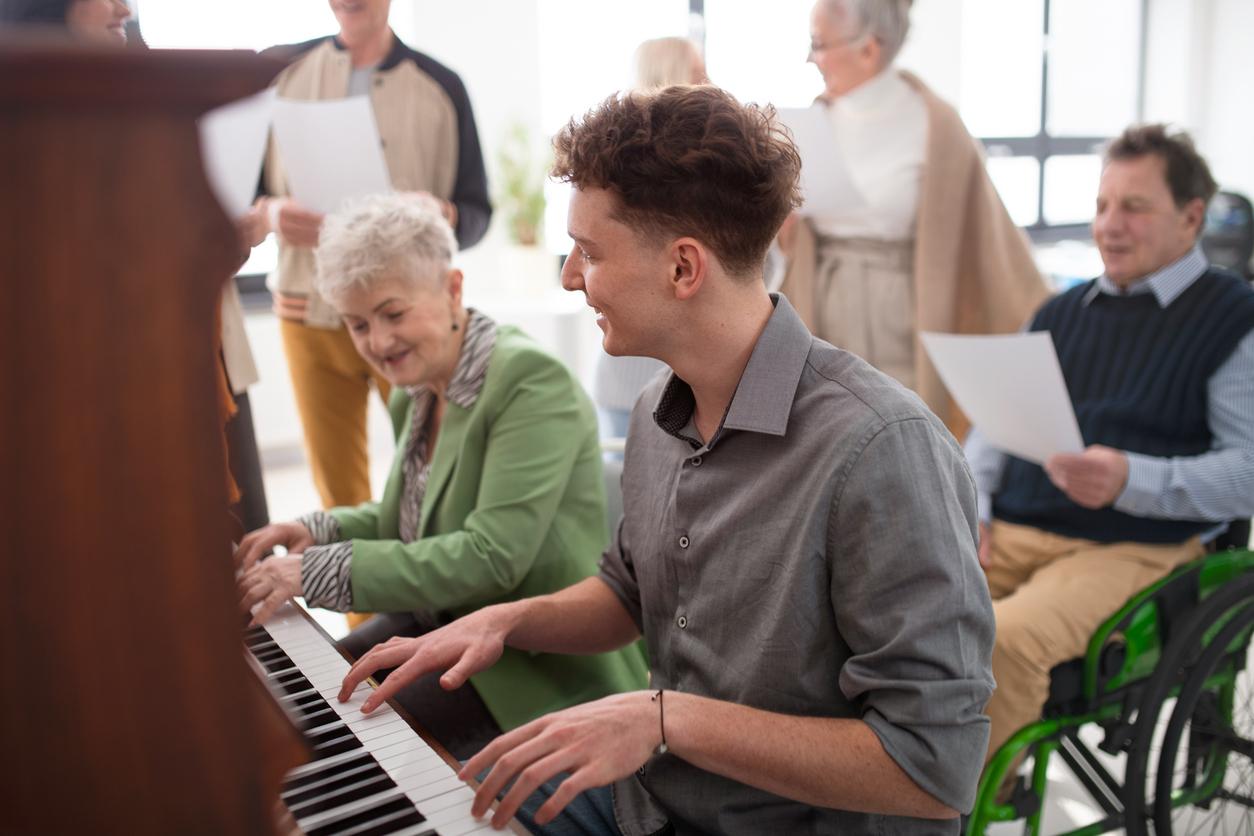
Healthy Conversation with Professor Marcel Olde Rikkert
Dementia is a nightmare for many people. And sure, it’s a nasty disease. Nevertheless, professor Marcel Olde Rikkert believes that the picture is less gloomy than is often thought. He advocates a healthy lifestyle and training the brain. Both are important, both in the prevention and during the disease course of dementia.
Keep the brain healthy
Marcel Olde Rikkert is professor of Geriatrics and head of the RadboudUMC Alzheimer Center in Nijmegen. His specialty is dementia. He treats people with dementia and does a lot of research into the course of the disease and the best treatment. What has become clear in recent years is that lifestyle is also a very important factor in this condition. As much as forty percent can be prevented with the right lifestyle. And even once the diagnosis is made, lifestyle can still help to slow down the process. Eating healthy, losing weight if you are overweight, getting enough exercise, consciously relaxing and getting enough sleep are all factors that count. This also applies to the proper adjustment and treatment of type 2 diabetes and high blood pressure. It all has a role in promoting the quality of the blood vessels, the blood flow in the brain and thus improving the health of the brain, says Olde Rikkert.
train your brain
One of the risk factors for dementia is impaired hearing. Those who hear less well often cut themselves off from company. People with impaired hearing no longer go to parties or avoid conversations. It is precisely this reduction in social contacts that is an important risk factor for the development of dementia. Low education, stress and depression are also factors that increase the risk of dementia. Your brain can be trained, just like muscles. Mental challenges and sufficient new stimuli can also help prevent dementia and slow the course of the disease. And what about heredity? That factor is much smaller than many people think, according to Olde Rikkert.
Customized approach
For a long time it was thought that there is not much you can do about dementia. This image also needs to be adjusted, says Olde Rikkert. If it is possible to change the lifestyle from diagnosis and provide sufficient (new) stimuli for the brain, the disease can worsen less quickly. That’s easy to say, but how do you do that? This requires customization. One person will benefit from an exercise program at the gym and a hearing aid. For the other, a better attitude to type 2 diabetes is needed, or measures at work so that this causes less stress. Olde Rikkert is researching a neighbourhood-oriented approach, in which small teams support the patient and his carers. In this way, crises can be prevented or resolved quickly.
Getting older is a blessing
We live in a society in which we have a high average life expectancy. That is a blessing, says Olde Rikkert. The elderly must participate fully in society, they must be involved in solving complex problems such as the climate crisis. It is precisely the combination of young and old that offers added value. Resilience is the magic word for everyone, but especially for elderly people with dementia. That means: dealing creatively with the limitations and looking at what is still possible. And that’s probably more than you think.
Curious about this conversation about dementia? You can listen to the podcast below.















